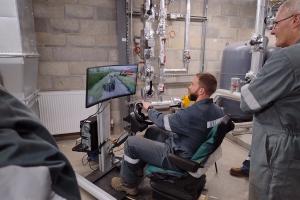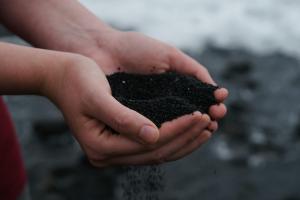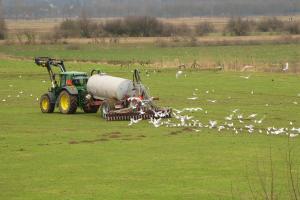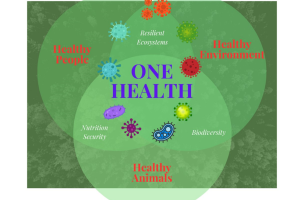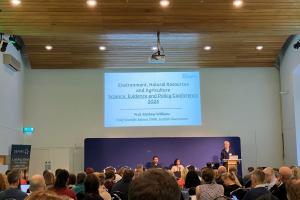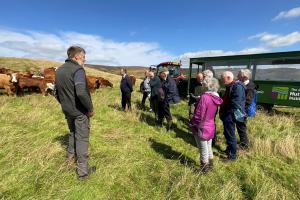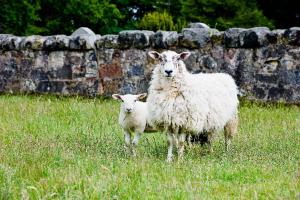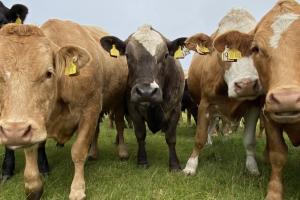Finding innovative ways to engage a wider audience is an ongoing challenge for researchers. Here at SEFARI, we are no less prone to these challenges and strive to ensure that our work generates valuable insights and reaches everyone in engaging ways. In this blog, read about one of our latest Innovative Knowledge Exchange (IKE) funded projects, the CROPsim Project, a tool that uses gaming technology to bridge the gap between cutting-edge agriculture research and those interested in sustainable farming practices.
Soil erosion remains one of the most pressing agricultural issues worldwide. It is still happening - the intensive way we farm is destroying and degrading the very basis of our entire food system, soil. In this opinion piece, Professor Lorna Dawson, SEFARI’s Knowledge Exchange Lead for Environment, discusses the issues and solutions to keep our soil healthy and productive.
Soil as a precious resource (Image by Seth Cottle, Unsplash)
Antimicrobial resistance (AMR) is a growing concern not only in hospitals but also in our farms and fields. When pathogenic bacteria acquire AMR, antimicrobials previously used to treat them are no longer effective causing a greater burden of disease. The use of antimicrobials in livestock can lead to increasing emergence of AMR which can spread more widely in the environment when farmyard manure or slurry is used as organic fertiliser to improve soil health and productivity in grasslands.
The interaction between nutrient management, food production and sustainability goals are complex, where both research and policy still remain fragmented. The report from the Nutrient Management Expert Group (NMEG), commissioned by DEFRA to tackle this complexity, was published in May 2024, containing the detailed assessment of the key policy and 15 recommendations. This blog summarises the key takeaways from this work.
Antimicrobial resistance is an emerging threat to the health of animals and humans in Scotland and around the world. SEFARI scientists at the Rowett Institute have made some early, exciting findings that may prove invaluable in the global battle to hold back the spread of anti-microbial resistance.
To mark this year’s International Day of Rural Women, our colleague Ana Vuin from Rural Policy Centre at SRUC, offers her insight on the role of women in agriculture and rural communities, challenges of representation, health and wellbeing, as well as opportunities to foster inclusive and fair rural society.
Title image: Hands together (Photo by Hannah Busing, Unsplash)
Climate Change Adaptation is one of the key items on the policy agenda in Scotland, and this was the main focus at this year’s ENRA Science, Evidence and Policy conference.
Organised by the Scottish Government’s Rural & Environmental Science and Analytical Services (RESAS) and held at Edinburgh’s Dynamic Earth, the conference brought together researchers and policymakers from across the rural and environment research and policy landscape in Scotland and showcased Scottish Government (RESAS) funded research evidence that is supporting climate change adaptation.
Climate-positive farming is key to Scotland’s climate change adaptation and mitigation.
In this blog, Prof Lorna Dawson, Knowledge Broker for Environment, reflects on her visit to the Climate-Positive Farming Initiative at the James Hutton Institute's Glensaugh Farm.
Reproductive diseases in sheep and cattle pose significant economic challenges. Therefore, SEFARI researchers at the Moredun Research Institute, funded by the Scottish Government’s Strategic Research Programme, are pioneering the development of new vaccines to tackle these issues. In particular, our focus is on preventing abortions and stillbirths in sheep caused by Chlamydia abortus (enzootic abortion of ewes also known as ovine enzootic abortion or ovine chlamydiosis) and in cattle due to Neospora caninum (neosporosis).
SEFARI Gateway are a silver sponsor at this year’s A3 Scotland conference - a not-for-profit two-day conference for the Animal Health, Agritech and Aquaculture (AAA) sectors, attracting attendees from all over the world to Inverness, to participate in plenaries, breakouts, investor panel and start up pitching, and sessions on funding, international showcase, skills and emerging solutions in AI, robotics, and sensors.
